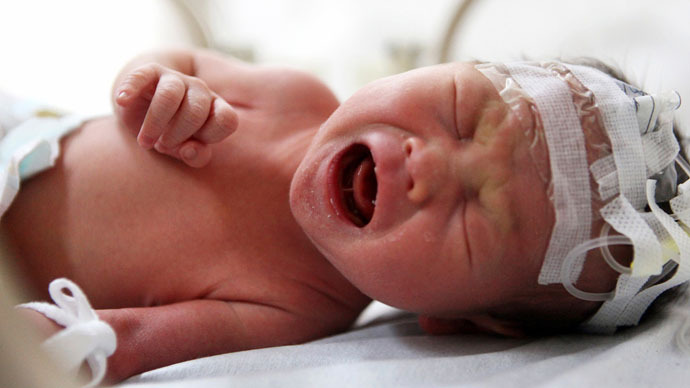‘Shocking’: Brussels sees highest perinatal mortality rate in Europe

Brussels, home to major EU political institutions, appears to have the highest perinatal mortality rate in Europe, according to a recent survey. A newborn’s life in the capital of Belgium is at higher risk than in countries like Romania or Slovenia.
The city, commonly associated with prosperity and comfort, features a perinatal mortality rate of 11.6 per 1,000 births, according to a survey published by Euro-Peristat, a statistics agency focused on gathering infant health data in Europe. The figure, described as “shocking” by Doctors of the World, includes deaths of fetuses older than 22 weeks, deaths during births and deaths of newborns younger than four weeks.
Brussels’ perinatal mortality rate is about twice as high as countries like Iceland (4.7), Portugal (4.8) or Cyprus (4.2). Even places, traditionally associated with poorer living conditions feature lower figures than the unofficial capital of the EU. In Romania it’s 9.5, Latvia 9.3 and in Slovenia 7.1.
The heart of EU’s decision-making, in fact saw the perinatal mortality rate skyrocket within between 2005 and 2010, as it increased by 36.5 per cent during that time.
“The figures are shocking”, said Stephane Heymans of Doctors of the World, as cited by De Morgen magazine. “But we need to be cautious with the estimates. We are speaking of very small figures here, so each single case influences the outcome. And also a city is being compared to countries. No doubt there are other cities with very bad rates.”
Experts say the perinatal mortality situation in Brussels is a sign of how divided the city is, with some really poor neighborhoods being part of one of the richest cities in EU. The unemployment rate in the capital is also much higher than in the rest of the country.
“It’s an indicator of an increased poverty in some parts of the city. In the poor neighborhoods, in the migrant neighborhoods unemployment is more than 50 per cent. And in those neighborhoods, of course, the living conditions are not very good, not very healthy. And that shows also in this kind of figures,” says sociologist, Prof. Eric Corijn.
The perinatal mortality figures come shortly after an OECD report, published earlier in May, which listed Belgium among countries with increasing child poverty.
“Households with children were hit hard during the crisis. Since 2007, child poverty increased in 16 OECD countries, with increases… in Turkey, Spain, Belgium, Slovenia and Hungary,” the report reads.
Doctors point at the lack of access to medical services for Brussels’ residents.
“People without papers, they are more and more [often] refused medical services. It takes a lot of time to obtain those papers. Hospitals put a lot of pressure on doctors and on administration in general to not accept people who cannot pay or cannot prove they can pay,” says Pierre Ryckmans of Doctors of the World.
With unemployment and poverty gripping Europe and recession raging on, the rise in perinatal mortality is seen as a gruesome indicator of the harshness of austerity measures. And those hit hardest are the destitute part of the population. And the situation is unlikely to improve in the near future, as deeper recession is expected in the EU. The OECD issued its new forecast on Tuesday, saying the European Union economy will shrink by 0.6 per cent this year. Just six months ago it only predicted a 0.1 per cent decline for the eurozone.














